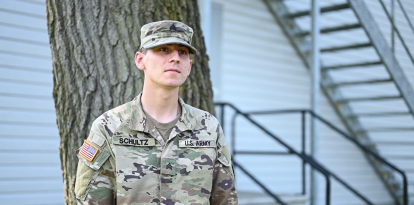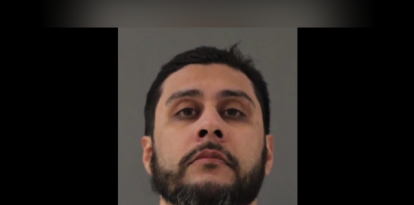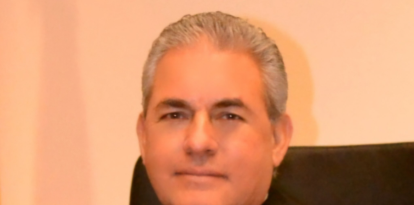Progressives vs. progressives: Woke hell in a Massachusetts town
An Amherst school is the scene of struggles related to racism, how to deal with harassment of transgender people and the role of teachers' unions.

Progressives vs. progressives: Woke hell in a Massachusetts town
About 40,000 people live in Amherst, in western Massachusetts, the vast majority of whom are progressive. In fact, in the 2020 elections, Joe Biden received 90% of the votes cast in the town, and several progressive posters are often seen on the streets.
Ideological debates and left-wing political infighting are rife in town, with what has been occurring at Amherst Regional Middle School (ARMS) serving as a prime example.
The discussions reached the public level in May last year, when an local school newspaper, The Graphic, published an article titled "'It’s Life or Death': Failure to Protect Trans Kids at ARMS a Systemic Problem." The article featured anonymous complaints from several students regarding numerous incidents of bullying and harassment, harmful encounters with academic advisors and insight into the attitudes of school administrators.
Among the surprising details of the article was noted that during a religious meeting at the school, a school counselor allegedly said a prayer mentioning a “gay demon that wants to confuse our children,” although said counselor denied having made those comments. The letter also indicated that the same employee distributed chocolate crucifixes to the children.
The article caught the attention of the mainstream press and conservative media, some of which indicated that Christian educators were being persecuted. Meanwhile, in Amherst, an emergency school committee meeting was held in the school library. At that moment, the mother of a transgender child had formally requested an investigation into gender discrimination at the institution, and the two counselors who appeared most prominently in The Graphic article were placed on leave. But several attendees at the meeting, which drew a crowd of teachers, parents and alumni, believed more needed to be done. They asked to investigate Michael Morris, the district's superintendent, and the resignation of Doreen Cunningham, the assistant superintendent who oversaw hiring and was considered close to the academic advisors. The members of the Amherst teachers' union said during the meeting that they had passed a vote of no confidence against Morris, who had taken emergency medical leave, and against Cunningham.
The fact was uncomfortable for the district, since most of the parents unhappy with the situation were white, while the counselors were not. Héctor Santos is Hispanic and Delinda Dykes is black. In addition, Doreen Cunningham, who held the position of assistant superintendent of diversity, equity, and human resources for the district, is black, while Morris, the superintendent, is white.
At the school committee meeting, which lasted nearly six hours, one of the few people who spoke in Cunningham's defense was her son, who had worked as a student support specialist. The young man maintained that the treatment his mother received was racially based. “For a prime example of how women of color get treated in leadership positions,” he told the crowd, “look no further than Amherst public schools.”
'The left is eating its own all over the country'
As journalist Jessica Winter pointed out in The New Yorker, the crisis was a collision of multiple issues: racial tension, union power, the treatment of queer and transgender children and the place of religion in schools, not to mention the consequences of the COVID-19 pandemic and what it has done to the fabric of civic life in the United States. Amherst Public Schools took a while to return to pre-pandemic normality. Schools in the district reopened for a mix of in-person and remote classes in April 2021, only after the state of Massachusetts forced them to do so.
“We had physicians, psychiatrists, social workers, and parents writing to us in despair about the impact that remote learning was having on the emotional and mental health of the children in our community,” Allison Bleyler McDonald, a former school committee member, told The New Yorker.
“Things really ramped up with COVID,” said Ben Herrington, who was also a member of the school committee. “The language changed. People became comfortable with being blatantly hostile. We were no longer having normal conversations,” he added.
Several people told The New Yorker about an incident that occurred in 2021, when the school committee approved a policy that would have allowed some unvaccinated staff members to enter the school as long as they wore masks. In response, McDonald, the then union president, said Lamikco Magee "accused us of wanting to inflict genocide on teachers." However, Magee denies ever mentioning the word "genocide."
Jessica Winter noted that even in a progressive, and largely prosperous, district, certain conflicts and tensions have come to seem unresolvable. “The left is eating its own all over the country—it’s not just Amherst,” one city resident told The New Yorker.
Amherst, a false 'woketopia'?
In Amherst, it is often joked that there are more Black Lives Matter signs in town than African-American residents. Little more than 12% of city residents are black or Hispanic, while about 60% are white and about 13% are Asian. However, the public school district is more racially diverse than the community at large, with about a quarter of students being black or Hispanic. This is due, in part, to the number of white and Asian families opting for private or charter schools. Herrington, a former school committee member who is black and has a son in high school, told The New Yorker that “Amherst is a town that loves to bill itself as being a woketopia. We have this Berkeley East persona that we put out. We aren’t really like that, though.”
Thirty years ago, the National Association for the Advancement of Colored People (NAACP) filed a federal lawsuit against the district for its academic tracking program, which placed a disproportionate number of children of color at the lowest levels. Most recently, the district reached a six-figure settlement with a black high school math teacher who, in 2014, was the target of racist graffiti. In the midst of that controversy, Michael Morris became assistant superintendent under Maria Geryk, a white woman. During a school committee meeting in June 2014, as members formally approved Morris' appointment, a group of protesters began singing "We Shall Overcome," a protest song that became an anthem in the United States Civil Rights Movement, forcing the meeting to be suspended.
Geryk issued a restraining order to a black mother who had been in frequent contact with staff about her son, who was having difficulty at school. Geryk was harshly criticized for the decision and eventually resigned. Morris replaced her. It was “a ridiculously volatile situation,” Herrington told The New Yorker. "So when Mike came in, it was like he had to do something," he added.
Controversial hiring
Morris introduced a new administrative position, assistant superintendent of diversity, equity and human resources. In recent years, DEI (Diversity, Equity and Inclusion) has become a target of ire for conservatives. Several states, including Texas and Florida, have passed laws to restrict such frameworks organizations at public schools and universities. For Morris, however, improving racial diversity among Amherst teachers was “a civil rights issue for our kids,” he said in 2017, citing research showing, for example, that black students who have black teachers perform better on standardized tests and are more likely to enroll in college. That year, he selected Cunningham for the job. “There was a lot of racism in the district," Cunningham said in statements to The New Yorker. “And I came, and a lot of people of color started to feel safe,” she added.
Under Cunningham, Amherst instituted a two-step hiring process aimed at eradicating implicit bias. One committee would choose candidates and another would ask applicants a uniform set of questions. Cunningham told The New Yorker that she “trained everyone—anyone who was going to be part of the committees was trained to look at their bias." But many district employees said Cunningham often evaluated candidates herself and made the final decisions. She denied it. “I’m not the one who hired anyone,” she said.
By 2023, the percentage of staff of color in the Amherst district had increased from 20% to 30%. But many of the new hires were low-paid employees who support full-time certified teachers. Kerrita K. Mayfield, who heads the science department, recalled an incident in which Dykes, a guidance counselor, who was perceived to be close to Cunningham, once interrupted one of her classes without warning to hand her a wooden plaque honoring her as the first black science teacher in the district. "It was a weird ceremonial moment," Mayfield told The New Yorker. "My students were, like, 'What's going on?' I'm like, 'Hell if I know, kids.'"
Restorative justice, an excuse for not disciplining students of color?
Cunningham acknowledged having tough, even uncomfortable, conversations with colleagues about race and equity and even recalled an incident in which at least one worker became upset because she had recommended they read the book "White Fragility." She even claimed that she was physically threatened by a staff member who opposed her leadership.
Cunningham invoked Claudine Gay, the former Harvard president who resigned in January after just six months on the job after coming under fire for refusing to take action against students who called for the genocide of the Jews. “There’s a lot that’s been shared lately about Black women in leadership roles,” Cunningham said. "People don't want them there," added Cunningham, who now goes by the last name Reyes. She was fired in October, so she has filed a discrimination complaint against the district.
Dykes and Santos, the counselors who were placed on leave, were among the black staff hired under Cunningham. Colleagues were often seen socializing in her office and elsewhere on campus, but Cunningham denied that she was especially close to any of the counselors.
Many people told The New Yorker that both Dykes and Santos brought religion to the school. Dykes told her colleagues and students to pray, and if they faced a dilemma, she asked them if they had prayed about it. According to the investigation, Santos mentioned the Bible and Jesus when he spoke to students. Furthermore, in The Graphic's article, there was an article that was critical of gender ideology that Santos had shared on social media.
In Dykes' first semester at ARMS, one of the students he supervised was a transgender seventh-grade boy. That year, the child, whom The New Yorker calls Jo, stated that he was the object of homophobic and transphobic slurs, but that adults rarely intervened. Earlier in the school year, the boy's mother spoke to Dykes on the phone about the harassment and bullying her son was experiencing, and Dykes attempted to reassure the woman by stating that adults at school address those types of situations.
However, the boy and his mother continued to report incidents of alleged bullying and harassment, and complained about the lack of disciplinary measures at the school. Like many other progressive school districts, Amherst uses restorative-justice practices, prioritizing mediation and reconciliation over punishment, as part of an effort to correct racial disparities in the disciplinary process. “What’s unique about Amherst is that there are racial and class dynamics that layer on top of the gender dynamics,” a veteran administrator at Amherst told The New Yorker. The mother and child are white, while the children who allegedly harassed the boy are black and Hispanic.
“I’m not saying that some of these students don’t cause problems,” one ARMS staff member said of the children who were frequently disciplined at school, “but they are the ones who face the most social ills in society. They’re the ones with a single mom working two jobs.”
"This situation has brought me a lot of personal and professional pain," Michael Morris, former superintendent at ARMS, told The New Yorker, referring to the minor and other transgender students at the school. "It’s unfortunate that these situations weren’t reported to me sooner," he added. In the summer of 2023, Morris returned from his medical leave and reached an agreement with the school committee to leave his position.
Racism as a permanent excuse
The investigation requested by the mother of the transgender child ended last year. A redacted version of their findings was made public in November. According to the investigator, Dykes and Santos "engaged in severe, pervasive, and objectively offensive unwelcome conduct." Students and staff told the investigator that both had made homophobic and transphobic comments. Dykes also allegedly told colleagues that a teacher was "practicing seances and witchcraft right in this school." However, she denied having made this accusation against her colleague.
After Martha Toro, a retired Amherst teacher, published an open letter criticizing the hiring process instituted under Cunningham, Dykes, according to multiple sources, said Toro was trying to start a “race war,” although she denied saying so.
According to the investigation, Cunningham frequently accused her colleagues of racism and, at least once, retaliated against an employee who had filed a complaint against Dykes. Cunningham insisted in statements to The New Yorker that this finding was “totally inaccurate.”
The investigation described a “culture of fear and intimidation” at ARMS. Some employees remained silent, frightened by the “fear of being labeled a racist." Mayfield told The New Yorker: "The worst thing you can be called in Amherst is racist, and it keeps people stuck."
Cunningham and her defenders believe she lost her job largely because she is a black woman; while her detractors believe that she only kept it so long for the same reason, said Jessica Winter. Both arguments may be true, but neither is fair. Even some of Cunningham's harshest critics see a double standard between her record and that of her boss, Morris, who quickly landed a new job in human resources in a nearby district, the report added.
The Amherst district has often lacked consistent leadership, and nowhere was this more evident than at ARMS. As of late 2022, then-Director Diego Sharon had been in and out of family and medical leave. Morris appointed Delinda Dykes to replace him, but she lasted less than six weeks, after parents complained that she had summoned a dozen or more students to the principal's office for being rowdy in the cafeteria. Two finalists for the position eventually withdrew their applications, and Morris appointed high school principal Talib Sadiq for the position. The middle school is located across the street from the high school; and Sadiq still supervises them both, walking back and forth during the course of the school day.
Lamikco Magee, former union president and dean of students at ARMS, also applied for the director position, but did not make it to the final round and was not considered after said finalists withdrew. "They didn’t want to hire me because I’m a straight shooter when it comes to what I think is right and not right," said Magee, who is African American. "But they were concerned about the optics, so they take the Black guy from the high school and make him principal over both buildings. Who in their right mind gives a principal two buildings?" he said.
Although most of the staff and students at the center of the investigation are no longer involved with ARMS, the turbulence at the school has not abated. Recently, the district submitted reports of alleged child abuse and neglect before the Massachusetts Department of Children and Families (DCF) against six educators at the school, a number that one union member called “highly unusual.” All reports were determined not to warrant further investigation by DCF, but among the accused teachers, one was fired and another resigned.
Meanwhile, members of POSH, the anti-sexual harassment club, filed complaints that one of their teachers was making inappropriate comments in class about students' race, weight and clothing. A district investigation found the claims were unsubstantiated. The teacher, who is black, filed a formal complaint against the club's faculty advisor, who is white, alleging that she “used her power as the Advisor of POSH to commit racist and sexist attacks on me." Shortly thereafter, the counselor was placed on paid leave and then relocated to a new position at the high school.
Letha Gayle-Brissett, the school's culture and climate coordinator, agreed at the end of 2023 to serve as interim director of ARMS. However, at a school committee meeting in January, a former student at the school, who is transgender and biracial, and the student's mother, who is white, spoke out against her appointment. They raised objections to the way Gayle-Brissett had addressed bullying incidents at ARMS against transgender students through restorative-justice policies that, the student's mother said, "placed [the student] in rooms with the bullying students."
School employees, both past and present, told The New Yorker that they were baffled by the allegations against Gayle-Brissett, who has a doctorate in education and is considered by her colleagues to be efficient, empathetic and deeply committed to students.
At the January school committee meeting, Gayle-Brissett refuted allegations about restorative-justice practices and suggested that criticism of their work was racially motivated. "There have been whispers that some members in the middle-school community are intent on removing people of color, especially Black people, from leadership positions," she expressed.
A high school staff member who spoke in support of Gayle-Brissett was more direct: “Amherst is racist, the staff is racist, and there’s a target on the back of Black people in the district.” In the end, Gayle-Brissett decided not to take the job.
RECOMMENDATION





















